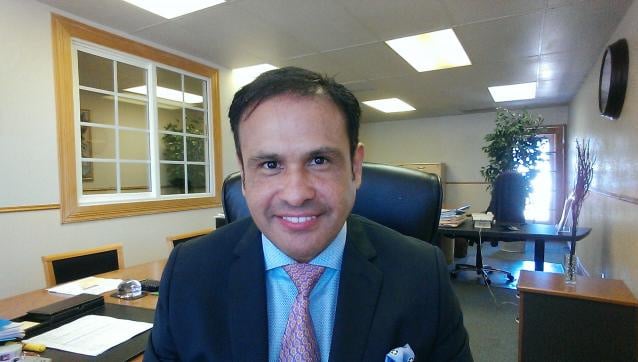Focusing on the formulation of financial analysis to allocate real estate assets to sectors of Commercial Real Estate: Mixed-Use Real Estate, Retail, Office Building as well as Commercial Multifamily Real Estate
Wealth Creation through Real Estate 1031 Exchange is at the intersection of
Real Estate Investments, Fostering Entrepreneurial Spirit and Financial Engineering
Fundamentals of Delayed 1031 Exchange Process
Day 1 & Beginning of the 45-Day Identification Period: Sell Relinquished Property [3-Property Rule | 200% Rule | 95% Rule]
Thereafter, 135 Days Remaining before the 180-day period expires.
A total of 180 Days to Complete Purchase of Replacement Property
 Our team has extensive experience structuring, negotiating and closing
Our team has extensive experience structuring, negotiating and closing
real estate transactions on behalf of investors.

Profile
Perfil
Edgard Asensio, MBA
edgard@asensiorealestate.com
1-310-618-0808
Education
Loyola Marymount UniversityAffiliation
LMU MBA Alumni Association (MBAAA)Honors
LMU Real Estate Advisory Council (REAC) [Executive Board Member]LMU Real Estate Alumni Group (REAG)
Awards
LMU Outstanding AwardSkills
LMU Real Estate Certificate Program LecturerEncouraging Academic Proficiency
 LMU Real Estate Certificate Program
LMU Real Estate Certificate Program
Real Estate 1031 Exchange
Instructor:  Edgard Asensio, MBA '12
Edgard Asensio, MBA '12
This course is designed to introduce students to 1031 exchanges from the vantage point of real estate investors specializing in office, mixed-use, multifamily and industrial properties. The class discusses the value proposition of engaging in a 1031 exchange as a way to unlock the existing equity in commercial real estate assets, review the set of financial models and frameworks used to assess the economics of the transactions, and assess the equal or greater value of the replacement property.
Students will be able to understand the fundamentals of 1031 exchange process, replacement property identification rules to complete an exchange, timeline to complete the exchange, applied strategies to relinquish real estate and acquire new property while deferring capital gains, depreciation recapture and net investment income on the sale of the relinquished property. Students also acquire an understanding of exchanging real estate assets to improve financial performance, quality of assets and increase value to a real estate portfolio.
Pillars of Company Success and Ideology
Our real estate brokerage firm's mission is to offer our clients the service to safeguard your real estate investments.
Methods expressed in percentage
Method expressed in dollar figures
We build a before-tax discounted cash flow (DCF) model and compare DCF model to the basic financial feasibility model analysis. The DCF model projects future cash flows and discounted them back to the present using a discount rate -investor's risk-adjusted before-tax cost of equity capital.
After analyzing the model, commercial real estate investors forecast Net Operating Income (NOI), before-tax equity cash flows, IRR and NPV. As a result, investors evaluate if the assumptions are reasonable and supportable to purchase the commercial real estate asset.

